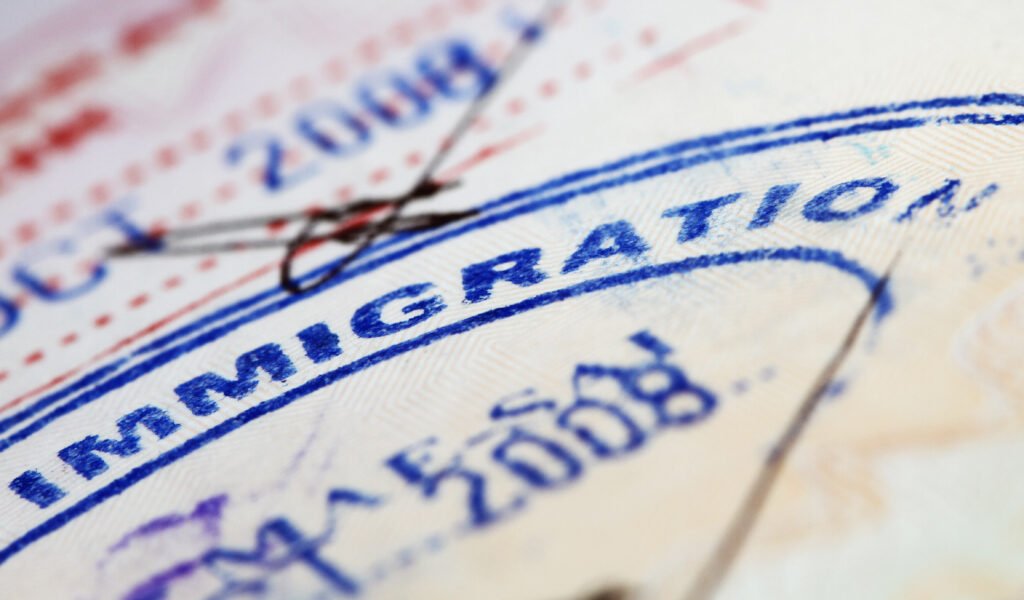
The I-130, Petition for Alien Relative, is a foundational step in the immigration process for United States citizens and lawful permanent residents seeking to bring close family members to the United States. Understanding the timeframes, requirements, and potential delays associated with this petition is essential for individuals and families navigating this path. Suday Law, based in Houston, Texas, provides legal guidance to individuals filing Form I-130 and supports them throughout the complex immigration system.
Purpose of Form I-130
Form I-130 is used to establish a qualifying family relationship between a petitioner who is a U.S. citizen or lawful permanent resident and a foreign national relative seeking to immigrate to the United States. It is the first step in the family-based immigration process and must be approved by U.S. Citizenship and Immigration Services (USCIS) before a visa number can be issued or the relative can apply for lawful permanent residency.
The approval of an I-130 petition does not by itself grant lawful permanent residency or a visa. Rather, it confirms the legitimacy of the family relationship and places the beneficiary in the queue for further immigration processing, either in the United States (Adjustment of Status) or through a U.S. consulate abroad (Consular Processing).
Who Can File an I-130 Petition?
U.S. citizens and lawful permanent residents may petition for certain family members. The eligibility varies depending on the petitioner’s immigration status and the relationship with the beneficiary.
U.S. Citizens May File for:
- Spouses
- Children (unmarried and under the age of 21)
- Unmarried sons and daughters (21 years or older)
- Married sons and daughters of any age
- Brothers and sisters (if the petitioner is 21 years or older)
- Parents (if the petitioner is 21 years or older)
Lawful Permanent Residents May File for:
- Spouses
- Children (unmarried and under 21)
- Unmarried sons and daughters (21 years or older)
How Long Is the I-130 Taking in 2025?
Processing times vary significantly based on the category of petition and the USCIS service center responsible for adjudication. Other factors that influence processing include petition volume, case complexity, and whether USCIS issues a Request for Evidence (RFE).
General Processing Timeframes in 2025
| Petitioner and Beneficiary Relationship | USCIS Category | Estimated Processing Time |
| U.S. Citizen → Spouse, Child (<21), Parent | Immediate Relative | 10 to 15 months |
| Lawful Permanent Resident → Spouse, Child (<21) | F2A Preference | 55 to 89 months |
| U.S. Citizen → Sibling | F4 Preference | 56 to 121 months |
| U.S. Citizen → Married Son or Daughter | F3 Preference | 70 to 100+ months |
Immediate relatives of U.S. citizens are not subject to visa quotas, which makes their overall immigration process shorter. In contrast, family preference categories are subject to annual visa caps and per-country limits, which often result in prolonged wait times.
Step-by-Step Explanation of the I-130 Process
Understanding the stages involved in the I-130 process is critical to navigating the immigration system effectively. The process described below is applicable to both immediate relative and family preference categories.
Step 1: Filing the Petition
The petitioner submits Form I-130 to USCIS, either by mail or electronically. Along with the petition, the petitioner must submit supporting documents, including but not limited to:
- Proof of U.S. citizenship or lawful permanent residency (passport, birth certificate, green card)
- Proof of qualifying family relationship (marriage certificate, birth certificate, adoption decree, or other documentation)
- Filing fee (currently $535)
USCIS will review the submission and issue a receipt notice, known as Form I-797C, Notice of Action. This notice confirms the petition has been received and is being processed.
Step 2: Adjudication by USCIS
Once the petition is under review, USCIS may approve the petition, deny it, or issue a Request for Evidence (RFE) if additional documentation is needed. This stage can take several months or longer, depending on the type of petition and the USCIS service center handling the case.
If approved, the petitioner receives an approval notice (Form I-797). If denied, the notice will state the reasons for denial and outline appeal rights, including the option to file Form I-290B, Notice of Appeal or Motion.
Step 3: Visa Number Assignment or Adjustment of Status
Following the approval of the I-130 petition, the next step depends on whether the beneficiary is inside or outside the United States.
Beneficiary Inside the United States
If the beneficiary is physically present in the United States and is eligible to adjust status, they may file Form I-485, Application to Register Permanent Residence or Adjust Status. This is often done concurrently with Form I-130 for immediate relatives of U.S. citizens.
Beneficiary Outside the United States
If the beneficiary resides abroad, the case is transferred to the National Visa Center (NVC), which begins pre-processing for consular processing. The NVC will request additional forms, civil documents, and payment of immigrant visa fees. Once all requirements are satisfied and a visa number becomes available (for preference categories), the NVC schedules an interview at the U.S. embassy or consulate in the beneficiary’s home country.
Step 4: Interview and Final Decision
Whether applying through consular processing or adjustment of status, most applicants must attend an in-person interview. The purpose of the interview is to verify the legitimacy of the relationship and ensure eligibility for immigration benefits.
At the conclusion of a successful interview, the beneficiary will receive either:
- A green card (if applying within the United States), or
- An immigrant visa (if applying through a consulate), which allows entry into the United States and results in permanent resident status upon arrival.
Delays and Challenges in the I-130 Process
Several factors may impact how long the I-130 petition takes and whether it proceeds smoothly. These include:
Backlogs and Staffing
Service centers may experience backlogs due to high volumes of applications, limited staffing, or administrative delays. This is particularly common in preference categories subject to visa quotas.
Requests for Evidence (RFEs)
Incomplete or insufficient documentation often results in USCIS issuing an RFE, which pauses the process until the required evidence is submitted and reviewed.
Priority Dates and Visa Bulletin
For family preference categories, the process is subject to priority dates. Applicants must wait for their priority date to become current according to the Department of State’s Visa Bulletin. This can delay further processing for several years, especially for beneficiaries from high-demand countries.
Background Checks and Security Clearances
USCIS and consular officers perform background and security checks on beneficiaries. If issues are detected, additional investigation or documentation may be required, which can further delay the process.
Legal Support and Representation
Because of the complexity and variability of immigration procedures, professional legal representation is strongly recommended. Suday Law provides comprehensive assistance with:
- Evaluating eligibility for family-based petitions
- Preparing and submitting Form I-130 and all supporting documentation
- Responding to RFEs and Notices of Intent to Deny (NOID)
- Advising on the adjustment of status and consular processing procedures
- Communicating with the National Visa Center
- Preparing clients for interviews
- Appealing denials, when appropriate
Contact Suday Law for Immigration Representation
The I-130 petition process is a vital component of family-based immigration to the United States. While immediate relatives of U.S. citizens often benefit from shorter timelines, other categories can experience significant delays due to visa limitations and procedural complexity.
In 2025, processing times continue to be affected by backlogs and resource constraints. However, careful preparation, accurate documentation, and professional legal support can significantly reduce the chances of delay or denial.
Suday Law in Houston, Texas, is committed to assisting individuals and families through every step of the I-130 process with clarity, diligence, and professionalism. For those seeking to reunite with loved ones in the United States, timely legal guidance can make a meaningful difference.

